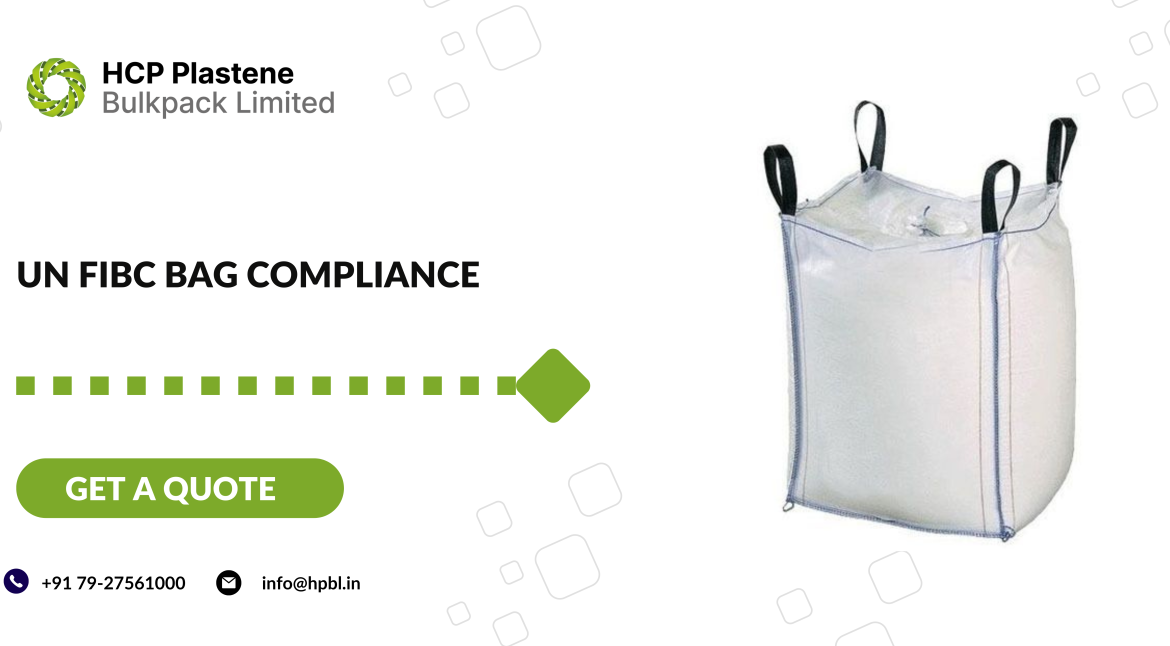UN FIBC bags come in handy when hazardous materials or substances that need special handling are transported because of the risks involved. These bags are designed and manufactured by a reputed FIBC bags manufacturer in India and across the world to meet strict international requirements, guaranteeing the secure cross-border transportation of dangerous goods. The main strategies that businesses can employ to adhere to UN FIBC bag regulations and guarantee that their bulk packaging operations satisfy global safety and regulatory criteria will be examined in this article.
Prime Requirements for UN FIBC Bags
Weight capacity and limits:
UN FIBC bags are required to adhere to specific weight limits based on Safe Working Load (SWL). This ensures that the bags won’t tear or split structurally under the weight of the cargo they carry. The bags are usually evaluated according to their strength and ability to safely hold hazardous materials.
Testing Procedures:
UN FIBC bags undergo a number of tests like stacking tests, drop tests, topple test, righting test, tear test and vibration test. These tests replicate actual circumstances in order to guarantee compliance.
Labeling Requirements:
Important safety and regulatory information must be included on every UN FIBC bag. This involves details about the substances being transported, codes for categorized danger, and symbols. All parties involved in the supply chain are guaranteed to be aware of the contents and any potential handling or transportation-related risks when labels are properly applied.
Traceability and Documentation:
FIBC bags that do not comply with UN regulations must be delivered with the appropriate paperwork, including test results and compliance certifications. This accreditation attests to the bags’ compliance with global safety standards and guarantees supply chain traceability.
Ways to Maintain Compliance in Manufacturing
-
Selection of Materials
The basis of compliance is selecting the right materials. UN FIBC bags must be made of materials that can withstand harsh conditions including sunlight, temperature changes, and rough handling. Because of its strength, flexibility, and resistance to tearing, premium woven polypropylene is the material of choice. Furthermore, the material is regularly coated with UV protection to stop degradation during storage outdoors and transit.
-
Quality control
Strict quality control methods are needed to ensure that every batch of FIBC bags satisfies UN requirements. This involves regular inspections to find any potential defects during and after the manufacturing process. The previously mentioned drop, tear, and vibration tests should be among the many tests that FIBC bags manufacturers in Gujarat can perform on-site.
-
Certifications
Numerous regulatory requirements, particularly those set forth by the UN and ISO, must be fulfilled by UN FIBC bags. FIBC bags suppliers
are required to ensure that each bag is properly certified and that their manufacturing procedures meet these requirements. To become certified, the bags must pass the required performance tests at an accredited testing facility.
-
Compliance during transportation
Producing FIBC-certified bags is just one part . It is equally important to maintain compliance when using and shipping these bags. The integrity of the bags may be compromised by improper handling, improper storage, and inadequate loading methods, all of which provide significant safety hazards.
-
Proper handling and transportation
Careful handling is essential to the structural stability of a UN FIBC Bag. Proper lifting techniques should be taught to employees, especially when handling hazardous materials. To reduce damage during physical handling, FIBC bags must be loaded and unloaded with mechanical lifting equipment, such as forklifts.
-
Proper filling and stacking
Ensuring that FIBC bags are filled to the necessary capacity is crucial. While underfilling can cause instability during transit, overfilling could tear or collapse the bag. Additionally, when storing FIBC bags, appropriate stacking procedures must be applied.
HPBL’s Commitment to UN FIBC Compliance
HPBL is a leading FIBC bag manufacturer and supplier specializing in UN-certified bags for transporting hazardous materials. With a commitment to stringent quality control, advanced manufacturing practices, and certified compliance, we ensure that its UN FIBC bags meet global safety standards. By choosing HPBL, businesses can rely on durable, reliable solutions that prioritize safety and efficiency at every stage of the supply chain.









